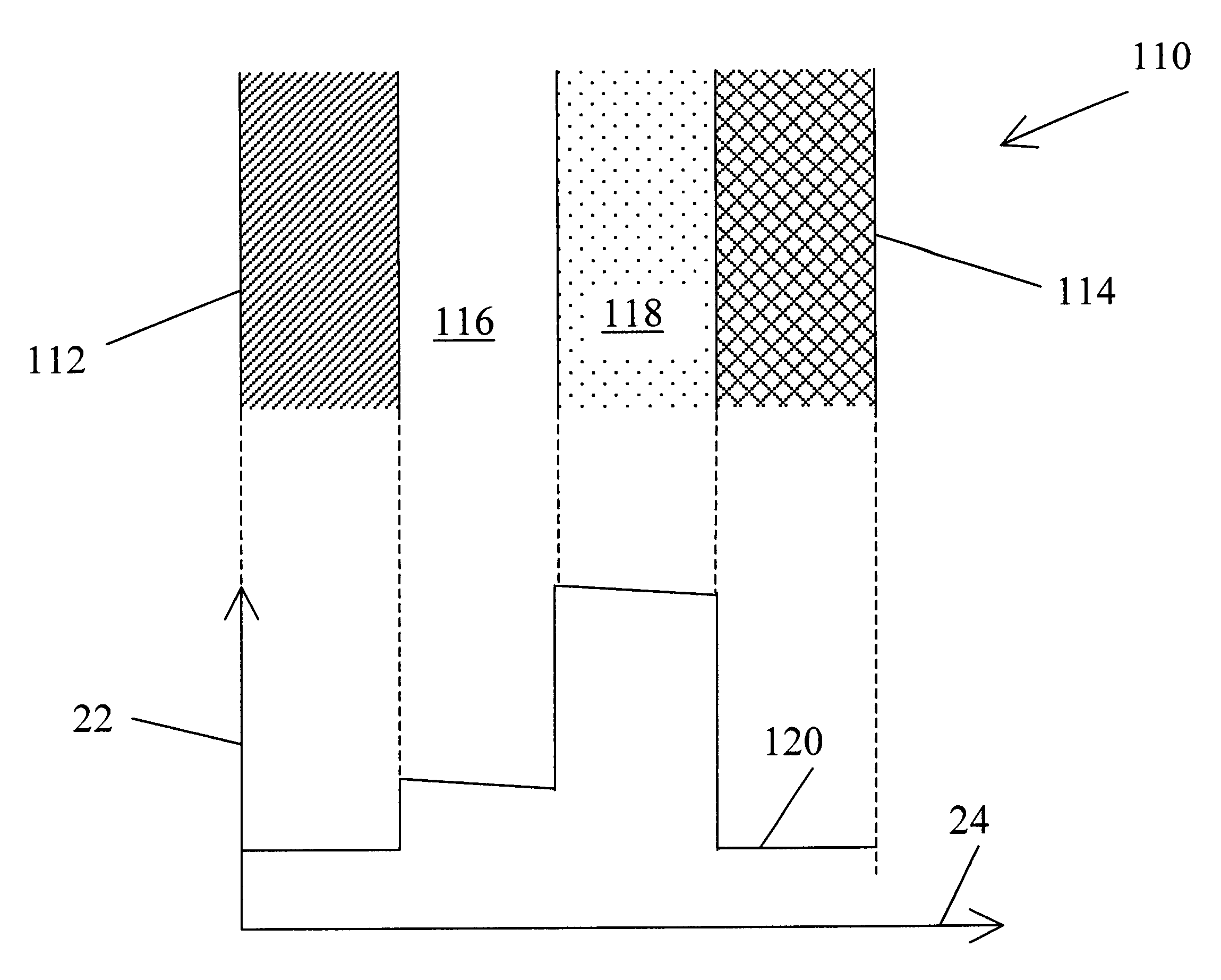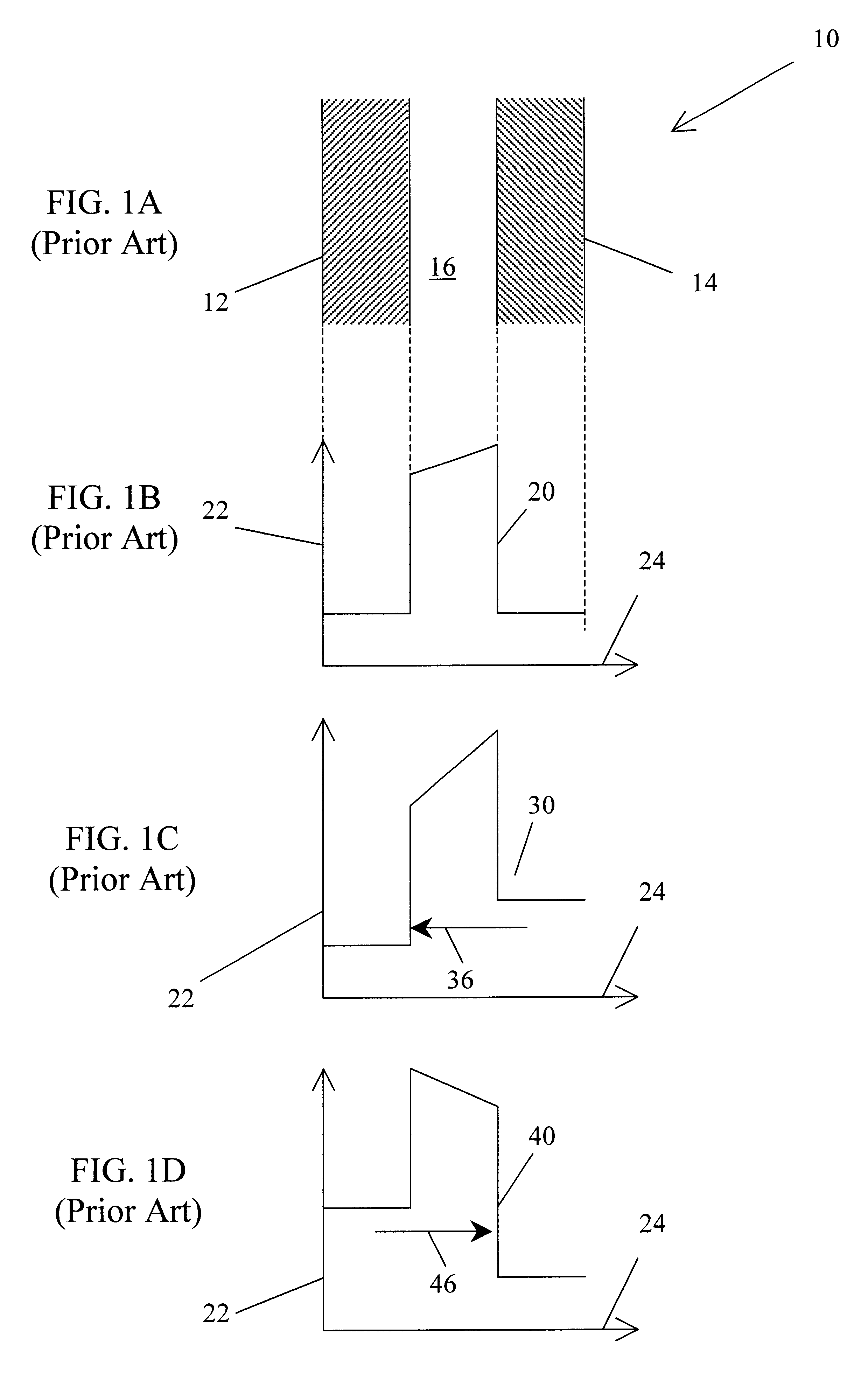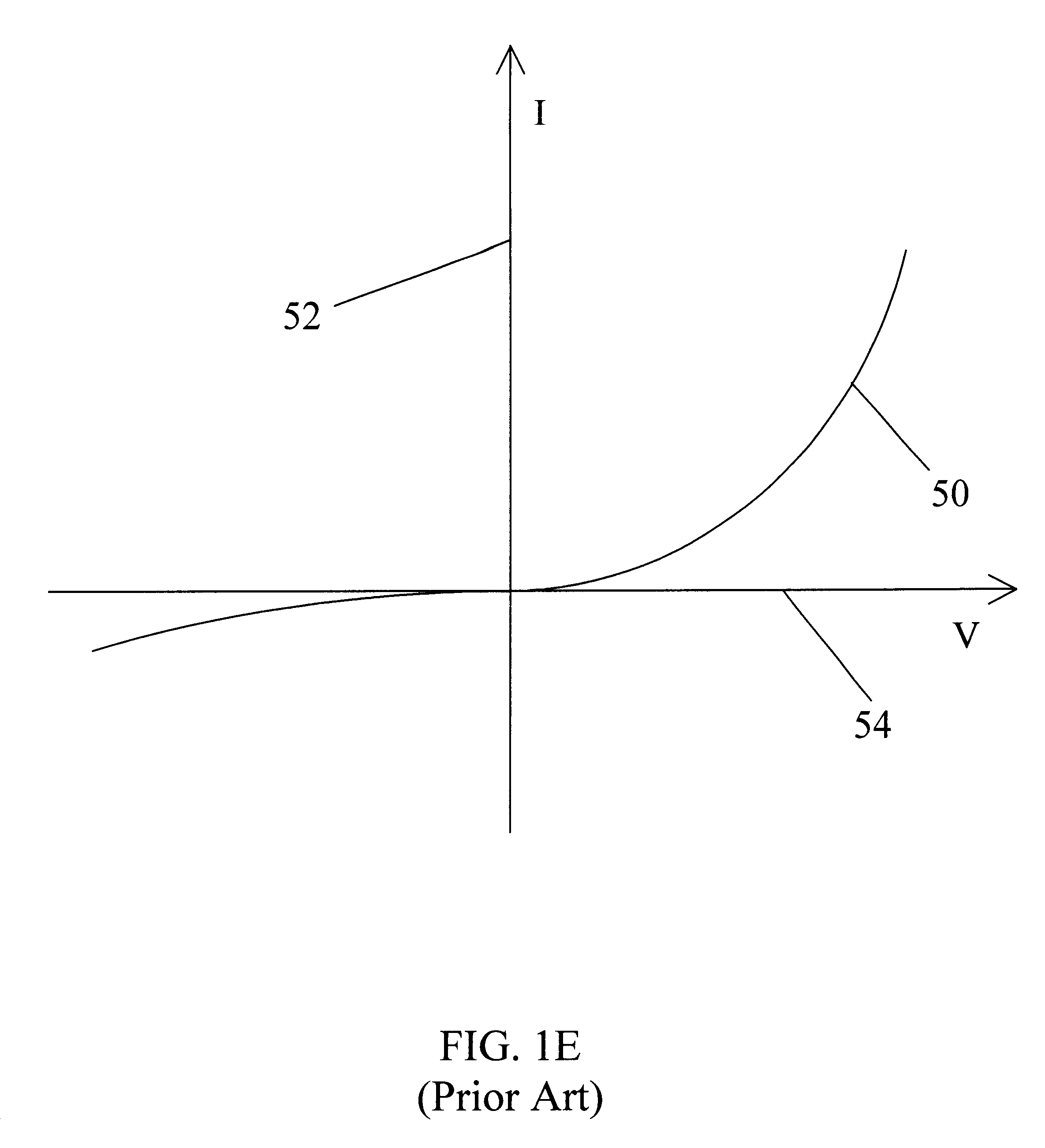Metal-oxide electron tunneling device for solar energy conversion
a technology of electron tunneling and solar energy, which is applied in the direction of pv power plants, light radiation electric generators, generators/motors, etc., can solve the problems of high energy conversion efficiency of semiconductor solar cells, inability to provide the amount of power, and inability to achieve the ratio of incident solar power to electrical power ou
- Summary
- Abstract
- Description
- Claims
- Application Information
AI Technical Summary
Benefits of technology
Problems solved by technology
Method used
Image
Examples
Embodiment Construction
The following description is presented to enable one of ordinary skill in the art to make and use the invention and is provided in the context of a patent application and its requirements. Various modifications to the described embodiments will be readily apparent to those skilled in the art and the generic principles herein may be applied to other embodiments. Thus, the present invention is not intended to be limited to the embodiment shown but is to be accorded the widest scope consistent with the principles and features described herein.
Referring now to FIG. 2A, an electron tunneling device designed in accordance with the present invention is described. The electron tunneling device, generally indicated by reference number 110, includes a first non-insulating layer 112 and a second non-insulating layer 114. Non-insulating materials include, for example, metals, superconductors, semiconductors, semimetals, quantum wells and superlattice structures. First non-insulating layer 112 a...
PUM
 Login to View More
Login to View More Abstract
Description
Claims
Application Information
 Login to View More
Login to View More - R&D
- Intellectual Property
- Life Sciences
- Materials
- Tech Scout
- Unparalleled Data Quality
- Higher Quality Content
- 60% Fewer Hallucinations
Browse by: Latest US Patents, China's latest patents, Technical Efficacy Thesaurus, Application Domain, Technology Topic, Popular Technical Reports.
© 2025 PatSnap. All rights reserved.Legal|Privacy policy|Modern Slavery Act Transparency Statement|Sitemap|About US| Contact US: help@patsnap.com



